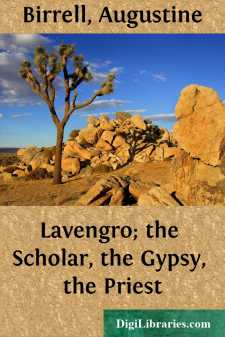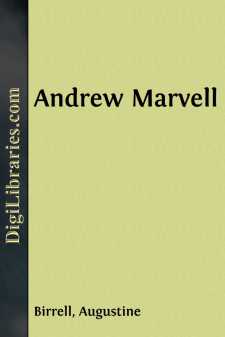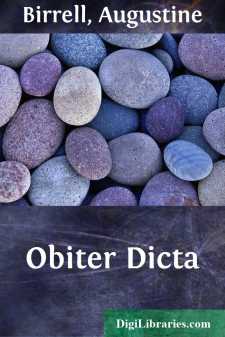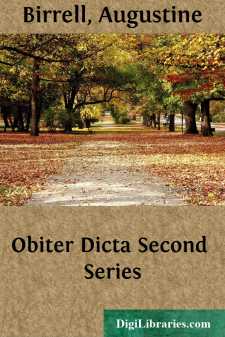Categories
- Antiques & Collectibles 13
- Architecture 36
- Art 48
- Bibles 22
- Biography & Autobiography 813
- Body, Mind & Spirit 142
- Business & Economics 28
- Children's Books 15
- Children's Fiction 12
- Computers 4
- Cooking 94
- Crafts & Hobbies 4
- Drama 346
- Education 46
- Family & Relationships 57
- Fiction 11828
- Games 19
- Gardening 17
- Health & Fitness 34
- History 1377
- House & Home 1
- Humor 147
- Juvenile Fiction 1873
- Juvenile Nonfiction 202
- Language Arts & Disciplines 88
- Law 16
- Literary Collections 686
- Literary Criticism 179
- Mathematics 13
- Medical 41
- Music 40
- Nature 179
- Non-Classifiable 1768
- Performing Arts 7
- Periodicals 1453
- Philosophy 64
- Photography 2
- Poetry 896
- Political Science 203
- Psychology 42
- Reference 154
- Religion 513
- Science 126
- Self-Help 84
- Social Science 81
- Sports & Recreation 34
- Study Aids 3
- Technology & Engineering 59
- Transportation 23
- Travel 463
- True Crime 29
Lavengro; the Scholar, the Gypsy, the Priest
Description:
Excerpt
The author of Lavengro, the Scholar, the Gypsy, and the Priest has after his fitful hour come into his own, and there abides securely. Borrow’s books,—carelessly written, impatient, petulant, in parts repellant,—have been found so full of the elixir of life, of the charm of existence, of the glory of motion, so instinct with character, and mood, and wayward fancy, that their very names are sounds of enchantment, whilst the fleeting scenes they depict and the deeds they describe have become the properties and the pastimes for all the years that are still to be of a considerable fraction of the English-speaking race.
And yet I suppose it would be considered ridiculous in these fine days to call Borrow a great artist. His fascination, his hold upon his reader, is not the fascination or the hold of the lords of human smiles and tears. They enthrall us; Borrow only bewitches. Isopel Berners, hastily limned though she be, need fear comparison with no damsel that ever lent sweetness to the stage, relish to rhyme, or life to novel. She can hold up her head and take her own part amidst all the Rosalinds, Beatrices, and Lucys that genius has created and memory can muster. But how she came into existence puzzles us not a little. Was she summoned out of nothingness by the creative fancy of Lavengro, or did he really first set eyes upon her in the dingle whither she came with the Flaming Tinman, whose look Lavengro did not like at all? Reality and romance, though Borrow made them wear double harness, are not meant to be driven together. It is hard to weep aright over Isopel Berners. The reader is tortured by a sense of duty towards her. This distraction prevents our giving ourselves away to Borrow. Perhaps after all he did meet the tall girl in the dingle, in which case he was a fool for all his pains, losing a gift the gods could not restore.
Quite apart from this particular doubt, the reader of Borrow feels that good luck, happy chance, plays a larger part in the charm of the composition than is quite befitting were Borrow to be reckoned an artist. But nobody surely will quarrel with this ingredient. It can turn no stomach. Happy are the lucky writers! Write as they will, they are almost certain to please. There is such a thing as ‘sweet unreasonableness.’
But no sooner is this said than the necessity for instant and substantial qualification becomes urgent, for though Borrow’s personal vanity would have been wounded had he been ranked with the literary gentlemen who do business in words, his anger would have been justly aroused had he been told he did not know how to write. He did know how to write, and he acquired the art in the usual way, by taking pains. He might with advantage have taken more pains, and then he would have done better; but take pains he did. In all his books he aims at producing a certain impression on the minds of his readers, and in order to produce that impression he was content to make sacrifices; hence his whimsicality, his out-of-the-wayness, at once his charm and his snare, never grows into wantonness and seldom into gross improbability. He studied effects, as his frequent and impressive liturgical repetitions pleasingly demonstrate. He had theories about most things, and may, for all I know, have had a theory of cadences. For words he had no great feeling except as a philologist, and is capable of strange abominations. ‘Individual’ pursues one through all his pages, where too are ‘equine species,’ ‘finny tribe’; but finding them where we do even these vile phrases, and others nearly as bad, have a certain humour....






